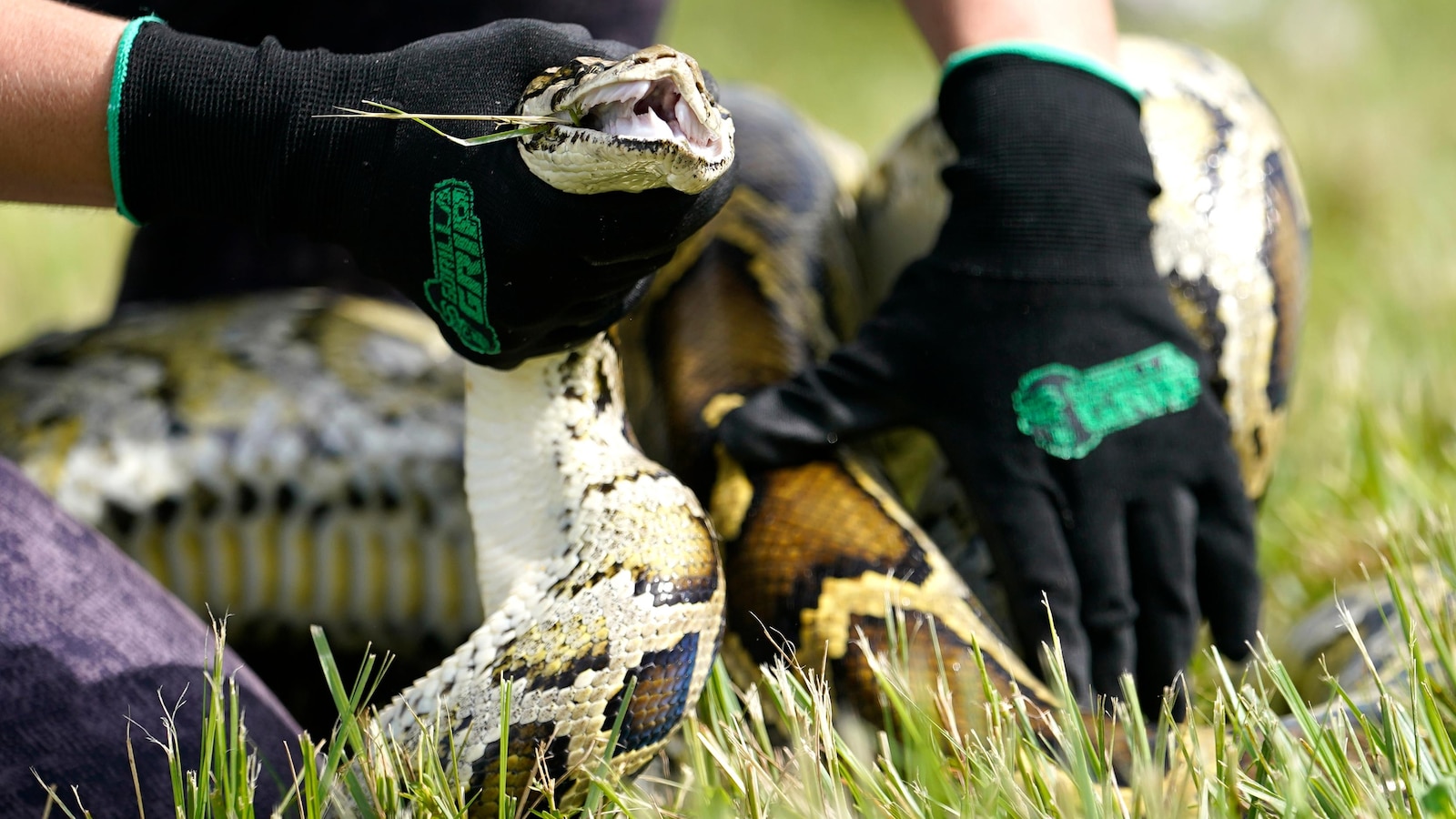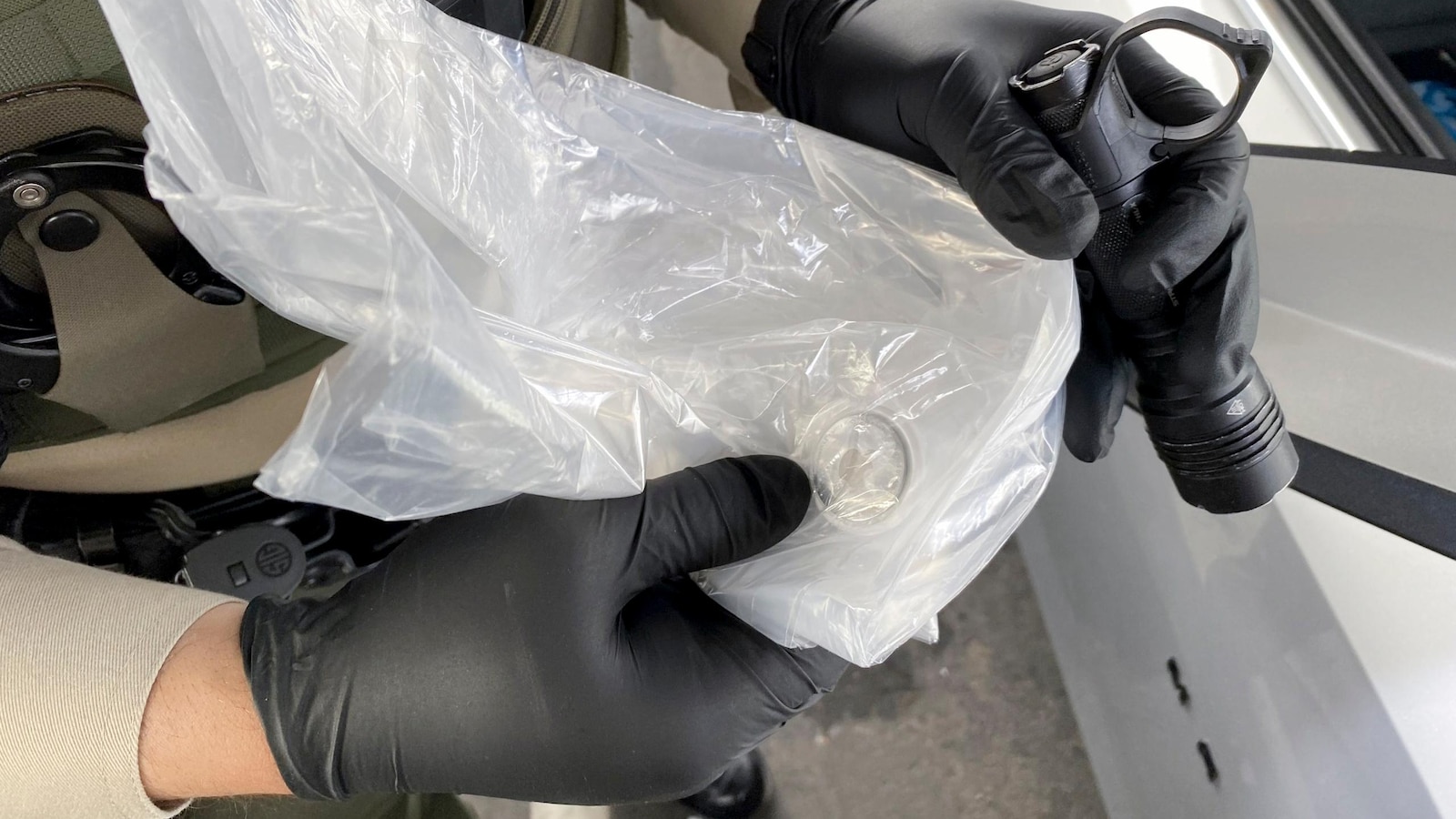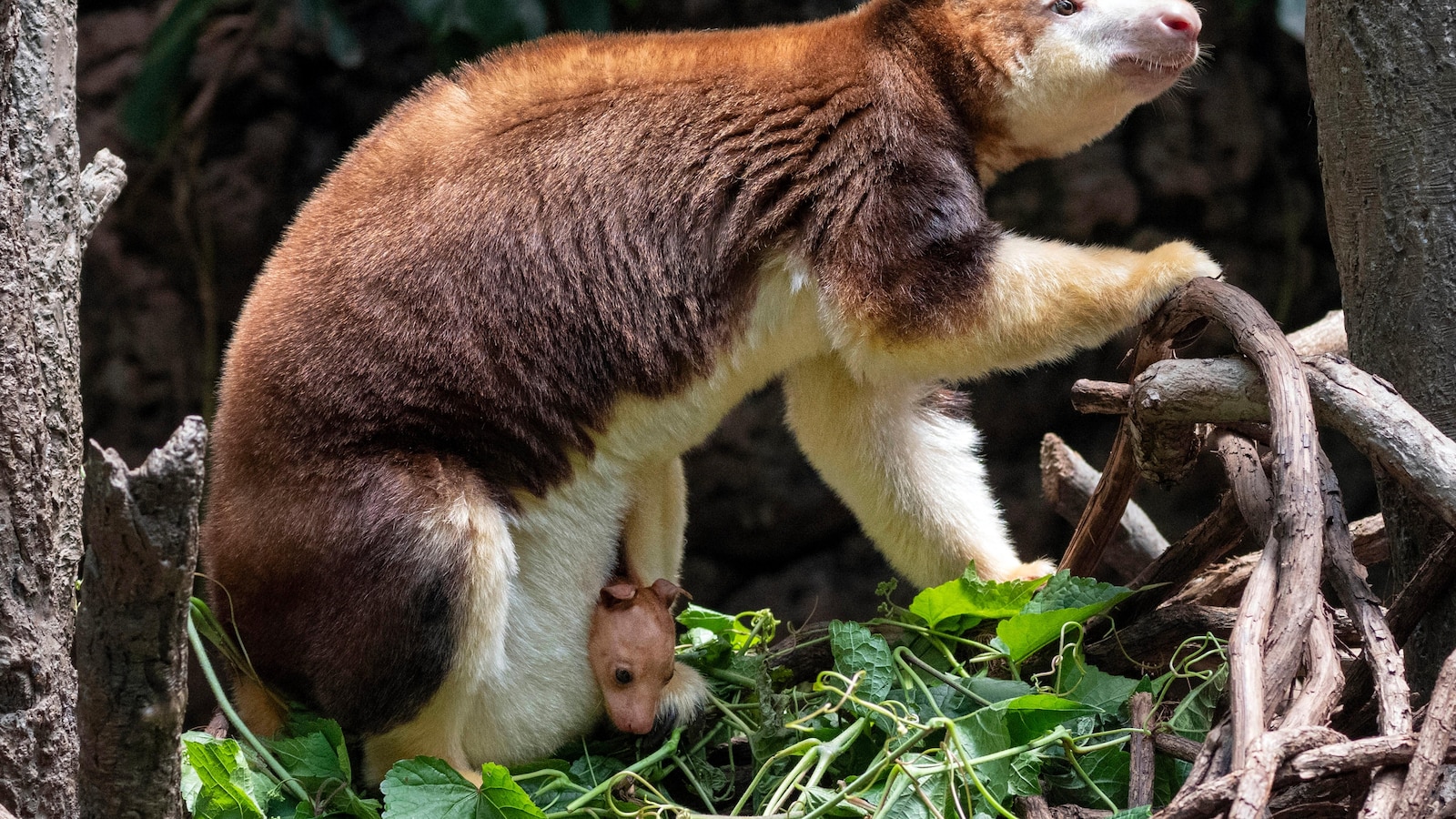
WEST PALM BEACH, Fla. — It’s official, the Florida Python Challenge this year has a winner.
The $10,000 grand prize went to Ronald Kiger, who removed 20 Burmese pythons from the Florida Everglades during the 10-day hunt, which was meant to bring awareness to the threat that these pythons pose to the ecosystem. Last year, he was the direct runner-up to the grand prize winner.
Representatives from Florida Fish and Wildlife Conservation Commission announced Kiger’s win in a Tuesday morning meeting in Duck Key. This year, more than 800 people from 33 states and Canada participated in the challenge, and hunters removed 195 Burmese pythons from the wild.
The rest of the prize money was divided amongst competitors in the contest’s three categories: novice, professional and military. Donna Kalil was one python away from a tie with Kiger. Kalil, a contractor with the South Florida Water Management District, got a $2,500 prize for catching 19 pythons in the professional category.
Also in the professional category, Marcos Rodriguez caught 16 pythons for the prize of $1,500, and Quentin Archie won a $1,000 prize for catching the longest python in this category at 8 feet 11 inches (2.7 meters).
Thomas Hobbs won $2,500 for leading the novice category by catching 16 Burmese pythons, while Dennis Krum caught the longest python in this category and also in the entire competition, at 9 feet 11 inches (3 meters).
Jeff Lince caught five pythons, winning $2,500 in the military category, and Antonio Ramos won $1,000 for catching the longest python in this group at 9 feet 7 inches (2.9 meters).
The challenge occurred in mid-August. Hunters were tasked with humanely killing the Burmese pythons and turning in the carcasses to any of the contest’s three check stations in South Florida.
The challenge wasn’t just meant for hunters to win the share of about $25,000 in prizes. It also served to raise awareness about the dangers of Burmese pythons, like how they affect native snakes, can spread diseases amongst native animals and have high mercury levels that are dangerous for human consumption.
“Over 14,000 pythons have been successfully removed by FWC and South Florida Water Management District contractors since 2017,” said Rodney Barreto, chairman of the Florida Fish and Wildlife Conservation Commission, in a news release. “This collective effort continues to have a direct positive impact on the Everglades and our native wildlife through removal and awareness.”
This year’s competition was a little bit smaller compared to last year. In 2023, more than 1,000 hunters participated and 209 pythons were removed.
Hunters contracted with the state’s wildlife commission and the South Florida Water Management District work year-round to remove the invasive pythons from the wild. A female python can lay about 50 to 100 eggs at a time, which is why the competition is held during hatching season in August. According to the wildlife agency, about 22,000 pythons have been removed from the state since 2000.
The winner of the Florida Python Challenge, an annual event aimed at controlling the population of invasive Burmese pythons in the state, has successfully removed 20 of these large snakes from the wild. The challenge, which took place over a month-long period, saw participants from all over the state competing to see who could catch the most pythons.
Burmese pythons are native to Southeast Asia and have become a major problem in Florida’s Everglades National Park. These snakes can grow up to 20 feet in length and have few natural predators in their new environment, allowing them to reproduce rapidly and outcompete native species for food.
The Florida Python Challenge was established in 2013 as a way to help control the growing population of these invasive snakes. Participants are trained on how to safely capture and remove pythons from the wild, and are encouraged to report their findings to wildlife officials.
The winner of this year’s challenge, whose identity has not been disclosed, managed to catch an impressive 20 pythons during the competition. This is a significant achievement, as removing just one python from the wild can help protect countless native species that are at risk of being preyed upon by these voracious predators.
In addition to the winner, many other participants also successfully captured pythons during the challenge, helping to further reduce the population of these invasive snakes in the Everglades. The data collected from these captures will be used by wildlife officials to better understand the behavior and distribution of Burmese pythons in the area.
While the Florida Python Challenge is just one small part of the ongoing efforts to control the population of invasive pythons in the state, it serves as a reminder of the importance of conservation and the need to protect native wildlife from harmful invasive species. By working together and taking proactive measures, we can help preserve Florida’s unique ecosystem for future generations.


